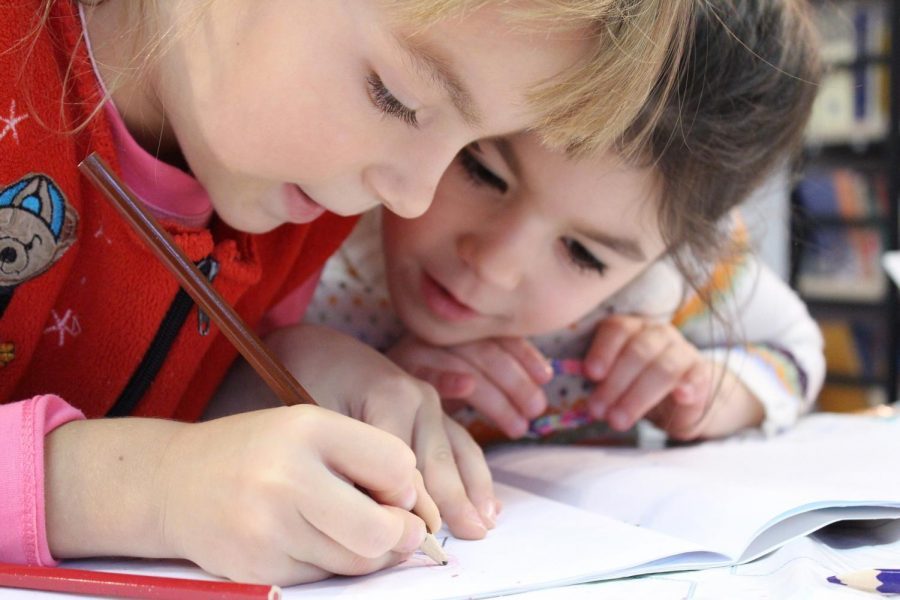Misoginy, a Problem to Fix
Young kids can start to develop cognitive flexibility and moral reasoning at the age of 8, so adults have to be extremely careful of the biases they put upon them.
“Boys will be boys.” Is something often used to excuse misogynistic ideas said by boys of any age. But the real question is, are boys just boys? Or has society taught them to be like this? Students seem to experience these types of behaviours differently and even though it can be seen as an adult topic, kids absorb and hear about this information in their everyday lives.
While misogynistic ideals are normalized today, we should make sure we are breaking down those walls, and that starts in schools with students. Kids are always studying their environment and can see differences in people. Peers and culture can be a very powerful influence on how children act and on the biases they take.
“We adults are the ones that through the example and the things we teach and the experiences we provide to children, have a great responsibility in how we educate children,” Ana Isabel Garcia, High School Counsellor, said.
Many girls experience this type of prejudice from a young age, one-third of female students actually have this experience. They are often talked to in a different vocabulary, taught that they have to be delicate and good, and are constantly belittled by men. Using different vocabulary presents men in positions of power commonly used phrases such as, “What a strong boy” compared to “What a delicate girl,” used in a positive manner. This influences children, who think in absolutes, black/white, and will conclude women are inferior.
“Often when we were in P.E we were separated and the boys did a sport that had more contact and the girls were left to play a sport that was not as extreme and oftentimes I just wanted to go with the boys and I couldn’t because it was seen as weird or more dangerous,” Helena Hoyos, Grade 10, said.
Female students explain how this happens in school and how it has been affecting them since they were little, male students are sometimes oblivious to the situation because they are not taught about it. They feel detached from these situations because they are either benefiting from them or have a neutral standpoint in them.
“Personally I haven’t seen or realized anything that has happened at school but I have heard many people that have been through it, but I haven’t seen it so it doesn’t affect me,” Hugo Herrera, Grade 10, said.
When girls experience sexism in school and their voices are ignored it diminishes their experience and the way they act around their peers as they can feel ignored or less than their male peers in class.
“Sometimes when I make a comment that I do believe is important for our grade or for our school it is disregarded or seen as something that is not as important or something that shouldn’t really be talked about. It makes me not want to say these comments anymore because they just make you feel smaller,” Hoyos said.
Adults will often overlook the repercussions that teaching kids stereotypes since they are young can cause. Kids will often absorb information and take in things as black and white. While enforcing stereotypes in children might seem harmless, it can be incredibly harmful to them in the future.
“Finally, it is a matter of not judging without evidence, not judging based on simple signs, and permanently questioning ourselves if we look at others with empathy or through stereotypes that do not make sense,” Garcia said.
In education, certain biases are passed on in school where girls are often discouraged from pursuing STEM courses. While some things might be mentioned as more feminine or masculine in schools, it can also affect the way that a girl or a boy might pick a career. By endorsing those stereotypes adults not only affect children in a direct way but also in an indirect and very subconscious way.
“There are certain careers that can be associated more with the feminine or more with the masculine, I think that it continues to cross the mentality of many people,” Garcia said.
So what can influential adults, like teachers and parents do in kids’ lives so they grow up without dangerous biases? If they already have them in their mind, they have to challenge their kids when they mention something that might be in any way misogynistic.
“When they started making these small comments and no one told them it shouldn’t be this way they didn’t see any reason to change it,” Hoyos said.
To prevent these types of situations from happening, since they are young, kids can be taught in a way where these stereotypes are not put in place so heavily. Parents and teachers can stop setting different expectations for both boys and girls, and they can be taught in a way where gender is not a big determinant in their daily lives. When asked, both Helena and Hugo said they both would have benefited from being taught in a way where gender isn’t a huge influence.
“I think something we can do is teach our future generations that women aren’t supposed to do certain things, and men aren’t supposed to do certain things and we should all just participate in everything,” Herrera said.
Work Cited
Moyer, Melinda Wenner. “Kids Learn Sexism Very Early. Here’s How Parents Can Help Them Unlearn It.” Slate Magazine, Slate, 6 Nov. 2017, slate.com/human-interest/2017/11/how-to-stop-sexism-and-raise-a-son-who-respects-women.html.
“It’s Just Everywhere – Sexism in Schools.” NEU, 2020, neu.org.uk/advice/its-just-everywhere-sexism-schools.




